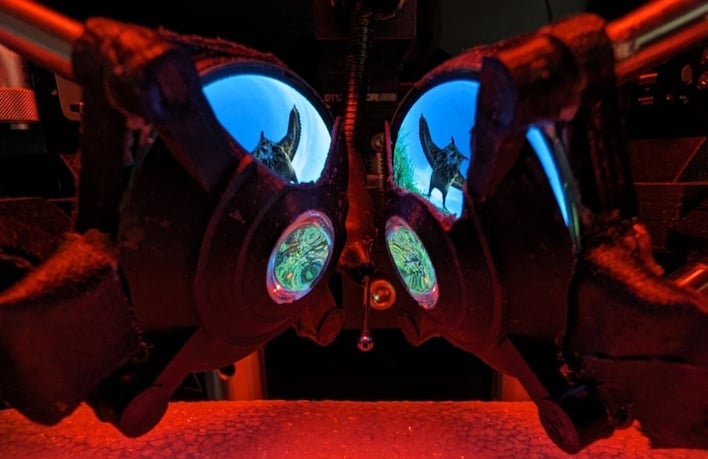Researchers Develop Tiny Cute VR Goggles For Mice With Big Implications
Earlier this week, researchers from Northwestern University published research outlining a new mouse VR goggle system called Miniature Rodent Stereo Illumination VR, or iMRSIV system. This system is designed to replace traditional virtual reality systems for rodents, which rely on display or projectors to surround the rodent that sits on a treadmill to control motion. The limitation with this legacy approach is simulating overhead threats, as not only is there a problem of verticality with the traditional system, but the rodent can also rely on external visual cues such as the ceiling or other lab environment components that ground them in reality, breaking the immersion and efficacy.

With iMRSIV, “the lab frame is not visible, and each mouse eye is separately illuminated, providing a full FOV [field of view],” up to 180 degrees per eye. This advancement allowed the researchers to observe “dramatic freezing and fleeing reactions to looming stimulation of the overhead binocular zone... and investigate neural circuits underlying behaviors such as goal-directed navigation, decision-making, accumulation of evidence, and path integration," which was not observed with the traditional VR system.
While all the research is pretty cool, we are disappointed you cannot seem to download a game off Steam with a title like “POV: You’re A Mouse” or something. However, you can assemble the contraption yourself with instructions found on GitHub. Though all of this sounds somewhat dystopian, we hope this helps advance the virtual reality field overall.


